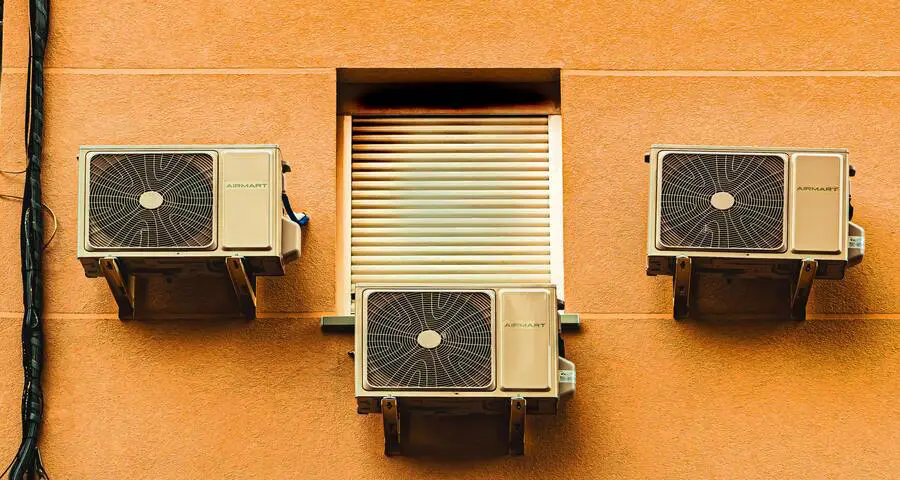
Florida’s climate is renowned for its heat and humidity, making air conditioning an indispensable aspect of daily life for residents. However, running your air conditioner incessantly can lead to skyrocketing energy bills and unnecessary strain on your HVAC system. To combat these challenges, it’s essential to employ strategies that maximize your air conditioner’s efficiency while keeping your home cool and comfortable. In this article, we’ll explore five essential tips to help you achieve just that in Florida’s humid climate.
Contents
1. Regular Maintenance is Key
In Florida’s humid environment, air conditioners work overtime to maintain indoor comfort levels, leading to increased wear and tear. Therefore, regular maintenance is crucial to keep your HVAC system running smoothly and efficiently. Experts at Millian Aire AC & Heating recommend that you should schedule professional maintenance at least once a year, preferably before the start of the hot season, to ensure optimal performance.
During maintenance visits, HVAC technicians will inspect and clean various components of your air conditioner, including the coils, filters, and ductwork. Clean coils and filters facilitate better airflow, allowing your system to cool your home more efficiently.
Additionally, routine maintenance helps identify and address minor issues before they escalate into costly repairs or system failures.
2. Invest in a Programmable Thermostat
A programmable thermostat is a valuable tool for maximizing your air conditioner’s efficiency in Florida’s humid climate. By programming temperature settings based on your schedule, you can avoid unnecessary cooling when no one is home, reducing energy waste and lowering your utility bills.
Take advantage of programmable thermostat features such as setting different temperatures for different times of the day or using vacation mode when you’re away for an extended period. These features allow you to maintain comfort while minimizing energy consumption, especially during peak cooling hours.
3. Seal and Insulate Your Home
Proper insulation and sealing are essential for keeping cool air in and hot, humid air out of your home. In Florida’s climate, where air conditioning is a necessity for most of the year, inefficient insulation or air leaks can significantly impact your HVAC system’s workload and energy efficiency.
Inspect doors, windows, and other potential air leakage points in your home and seal any gaps or cracks with weatherstripping or caulking. Additionally, ensure that your home is adequately insulated, especially in the attic and walls, to prevent heat transfer and maintain consistent indoor temperatures.
4. Optimize Airflow
Optimizing airflow throughout your home is crucial for ensuring efficient cooling and maintaining indoor comfort levels. Poor airflow can lead to uneven cooling, hot spots, and increased energy consumption as your air conditioner struggles to reach desired temperatures.
Start by ensuring that vents and registers are unobstructed by furniture, curtains, or other objects that may impede airflow. Regularly clean vents and replace air filters to prevent dust and debris buildup, which can restrict airflow and strain your HVAC system.
Consider using ceiling fans in conjunction with your air conditioner to promote better airflow and distribute cool air more effectively. Ceiling fans create a wind-chill effect that allows you to raise the thermostat setting without sacrificing comfort, resulting in energy savings.
5. Consider Energy-Efficient Upgrades
Upgrading to energy-efficient HVAC equipment can significantly improve your air conditioner’s efficiency and reduce your energy consumption in Florida’s humid climate. Look for systems with high Seasonal Energy Efficiency Ratio (SEER) ratings, which indicate greater energy efficiency and lower operating costs.
Consider investing in a variable-speed air conditioner or heat pump, which adjusts its speed based on cooling demands, providing precise temperature control and enhanced energy savings. Additionally, explore options for ductless mini-split systems, which offer zone-specific cooling and eliminate energy losses associated with ductwork.
Conclusion
In Florida’s humid climate, maximizing your air conditioner’s efficiency is essential for staying cool and comfortable while keeping energy costs in check. By following these five essential tips – regular maintenance, investing in a programmable thermostat, sealing and insulating your home, optimizing airflow, and considering energy-efficient upgrades – you can ensure that your HVAC system operates at peak performance, providing reliable cooling when you need it most. With these strategies in place, you can beat the heat without breaking the bank.
